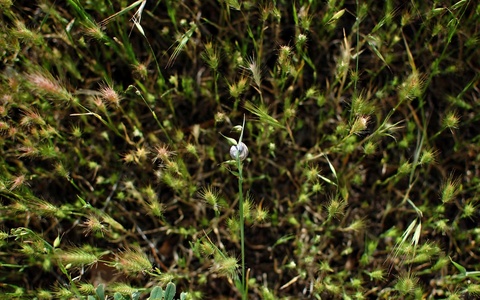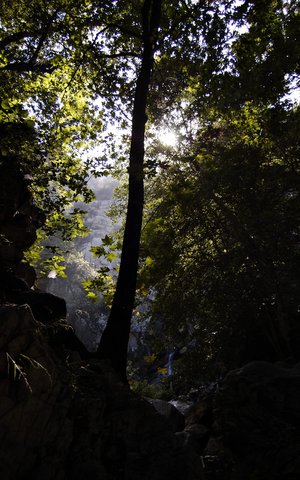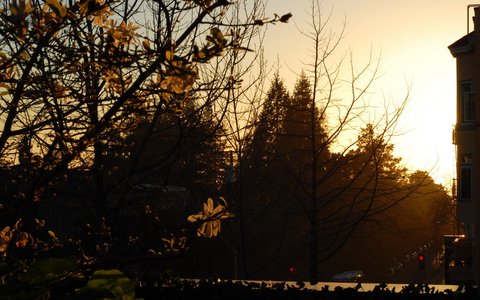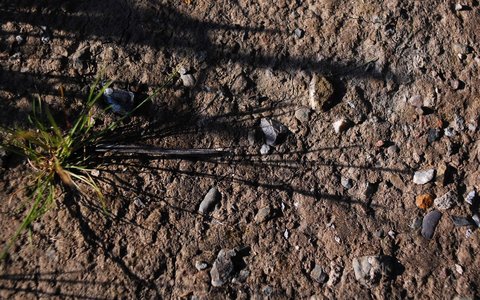
It was a night after a heavy rain when I walked home alone, lost in thought. I made my way down a concrete sidewalk, hurrying because the cold had the full bite of an autumn night, and the street lamps only barely illuminated the path before me.
There were trees along the street, their branches bare except for a couple leaves shivering in the wind, and as I walked, I could hear and feel the subtle crunch crunch of fallen leaves against the soles of my shoes. It was soothing: a rhythmic, zen-like punctuation in the still night. I admit I almost relished it.
I don’t know exactly when it happened, but sometime during my train of thoughts, I had a sudden, frightful moment of self-awareness, one that told me that something was terribly wrong. Perhaps it was that there were more leaves along the street than I would have guessed, or that sound of me stepping on them was louder and crisper than it should have been, or that the feeling against my foot had a certain strangeness to it. I froze, and I looked down. I would soon regret it.
As it had been raining for several days before this, the snails had vacated their homes in the soil, and made their way onto the sidewalk. When I looked down, I realized that it had not been leaves that I was stepping on, but dozens upon dozens of snails—the sidewalk was filled with them. I forced myself to look behind, and I saw a massacre.
A trail of broken shells and broken dreams.
Guilt froze me to the ground, then cowardice, like a boy who flees the scene of the crime when he realizes that he has broken his mother’s favorite vase, sent me sprinting the rest of the way back, darkness gathering in my conscience as I did so. I reached my door, slammed it behind me, shut the windows, and collapsed on the floor, breathing heavily.
I peered around the room, and that was when I made the second frightening realization of the night: I had not outrun the snails. I hadn’t bothered to turn on the light, and I saw them dance and shuffle in the shadows, creeping ever-closer to me. I swatted at them—my hands hit nothing but carpet. I closed my eyes—and saw nothing but the faces of each and every snail I had crushed.
Do not think that snails are slow. Freed from their earthly shells, their souls will chase you to the ends of the earth with frightening speed.
I know not why I write this. I am apologetic, but I expect no forgiveness. Perhaps with this confession, the nightmares will finally stop.



